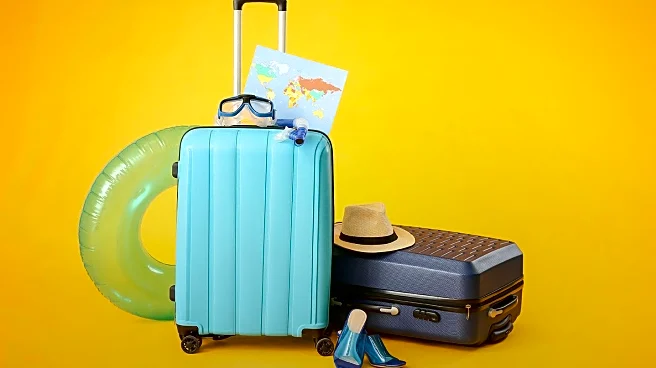What's Happening?
Hilton's 2026 Travel Trends Report reveals a significant shift in the travel industry towards 'whycations,' where travelers prioritize purpose-driven itineraries over traditional destination-focused trips. This concept emphasizes emotional motivations such as rest, reconnection, and meaningful experiences. The report, based on a survey of 14,000 travelers across 14 countries, indicates a transition from the 'more is more' travel approach to more intentional experiences. Key trends include 'hushpitality,' where travelers seek tranquility, and 'home comforts,' where familiarity becomes a cornerstone of travel. Multi-generational trips and 'skip-gen' getaways are also gaining popularity, highlighting the role of family in shaping travel habits.
Why It's Important?
The shift towards 'whycations' reflects broader changes in consumer behavior, where travelers seek more meaningful and personalized experiences. This trend could impact the hospitality industry, prompting hotels and travel companies to adapt their offerings to meet the demand for purpose-driven travel. The emphasis on comfort and connection may lead to increased demand for destinations that offer tranquility and familiarity. Additionally, the focus on family-oriented travel could influence marketing strategies and product development in the travel sector. As travelers prioritize emotional motivations, businesses may need to innovate to cater to these evolving preferences.
What's Next?
As the travel industry adapts to the 'whycation' trend, companies may explore new ways to offer personalized and meaningful experiences. This could involve developing packages that emphasize emotional connections and comfort, as well as expanding offerings for multi-generational travel. The upcoming 250th anniversary in the United States in 2026 is expected to reignite interest in road trips, with travelers focusing on the journey itself. Hotels and travel companies may need to enhance their services to accommodate this renewed interest in road travel, ensuring comfort and convenience for travelers.
Beyond the Headlines
The rise of 'whycations' may have deeper implications for the travel industry, including ethical considerations around sustainable tourism and cultural sensitivity. As travelers seek meaningful experiences, there may be increased scrutiny on the environmental and social impact of travel. Companies may need to address these concerns by promoting sustainable practices and ensuring that travel experiences are respectful of local cultures. The trend towards purpose-driven travel could also lead to long-term shifts in consumer expectations, with travelers demanding more transparency and authenticity from travel providers.









